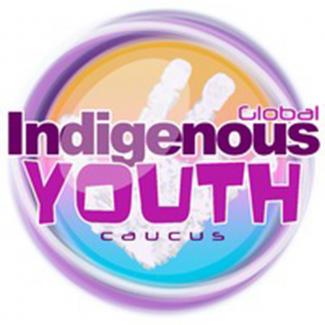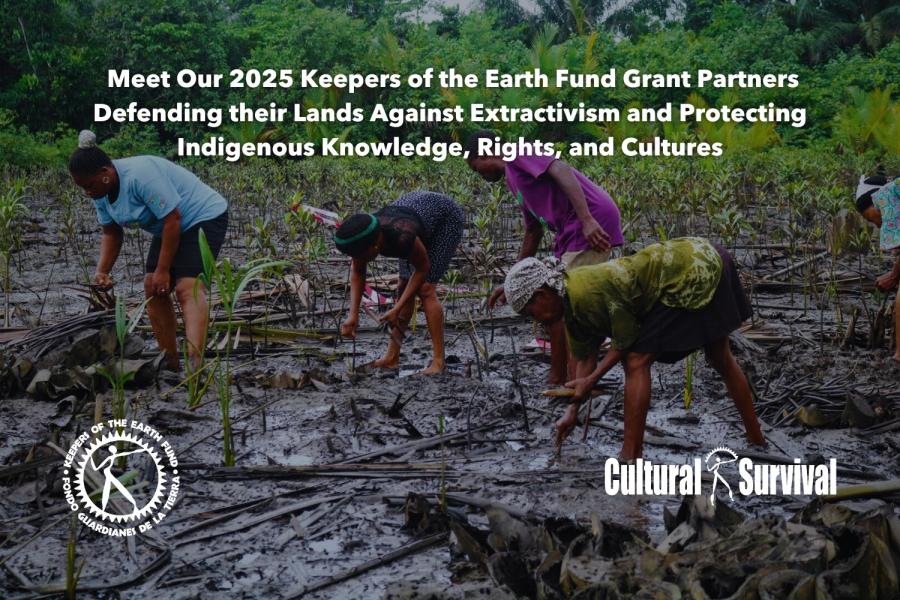
[[{"fid":"61921","view_mode":"full","type":"media","attributes":{"height":240,"width":355,"style":"height: 203px; width: 300px; margin: 10px; float: right;","class":"media-element file-full"},"link_text":null}]]Hassoumi Abdoulaye
(Mbororo), Age 26, Cameroon
Hassoumi Abdoulaye, Deputy Secretary General for the Mbororo Youth Association of Cameroon, first got involved with the UN Indigenous Youth Caucus during the Indigenous Preparatory Conference in Alta, Norway last June. He understands the importance of the youth caucus: “[The UN] is a venue where their voice can be raised and listened to without any prejudice.”
Indigenous youth in Cameroon face grave human rights violations; forced labor, early marriages, a high illiteracy rate, child prostitution, non-recognition, land grabbing, and extinction of culture among them. Mbororo youth in Cameroon have been active through organizations like the Mbororo Youth Association and the Mbororo Social and Cultural Development Association, as well as networking with other Indigenous youth to address the issues affecting their community.
Abdoulaye appreciates the importance of youth involvement in the implementation of the Declaration, believing that youth “ensure a role of linkage between stakeholders and the Indigenous community. They are seen as defenders of the violations of the Declaration,” he says. Compared to their elders and parents, Mbororo youth are uniquely primed for capacity building programs and are mastering new information and communication technologies. Still, Abdoulaye is inspired by the Mbororo elders who “sacrificed their time and lives for the emancipation of our community.” He adds, “the backbone of Mbororo development is the youth. That’s why we are encouraging all of them to be educated and to be involved.”
[[{"fid":"61922","view_mode":"full","type":"media","attributes":{"height":240,"width":355,"style":"height: 203px; width: 300px; margin: 10px; float: right;","class":"media-element file-full"},"link_text":null}]]Julius Ceasar M. Daguitan
(Igorot), Age 25, Cordillera, Philippines
Julius Ceasar M. Daguitan came to the UN Indigenous Youth Caucus through his organization, the Asia Pacific Indigenous Youth Network (APIYN). The APIYN promotes and defends the rights of Indigenous youth by providing systems of information, exchange, and networking. Back home in the Cordillera region of the Philippines, Daguitan counters negative ideas about the Igorots through his work with Dap-ayan ti Kultura iti Kordilyera, an alliance of individuals and organizations working to safeguard the rich heritage of the Cordillera. With the alliance, Daguitan educates youth about various issues in the region such as inaccessible education, environmental degradation, militarization, and human rights violations—and critically, what they can do to solve these problems.
One of the most pressing problems for Indigenous youth in the Cordillera continues to be a lack of accessible, quality education. Most schools are located in town centers, and youth may have to walk long distances to reach their school. Schools are also very expensive, and there is no guarantee that graduates will be able to find employment. Daguitan is inspired by his work with Indigenous youth, both “by those who have gone before me...[and] by those who are with me and still continuing the fight for a peaceful community based on justice.” He recognizes that the full realization of the Declaration is a long way off, but he is confident that “with the active and full participation of youth, we can make it into a reality.”
[[{"fid":"61923","view_mode":"full","type":"media","attributes":{"height":240,"width":355,"style":"height: 203px; width: 300px; margin: 10px; float: right;","class":"media-element file-full"},"link_text":null}]]Dalí Ángel (Zapotec),
Age 26, San Juan Jaltepec in Oaxaca, Mexico
Dalí Ángel first participated in the Permanent Forum in 2011. She describes her work with the youth in her community: “Young Indigenous promoters are in charge of sharing what they have learned with the rest of the community. It is important to listen to each other and to build knowledge together.” Ángel believes it is necessary for Indigenous youth to begin from their place of experience and make their problems and needs visible: “We must be able to influence these spaces in order to provide our recommendations to resolve our issues, recommendations arising from a collective organizational process starting at the local level,” she says.
Ángel is also a member of an Indigenous youth collective in the region of Istmo, Tehuantepec, Oaxaca. To create solidarity with other youth collectives, she and her group formed part of the Network of Youth Organizations of Istmo of Tehuantepec. Since 2007 she has been part of the organization Indigenous Women for CIARENA, where she works with communities in the Mixe and Chinantla region of Oaxaca. Describing her role in the Alliance of Indigenous Women of Central America and Mexico, she says, “I have the responsibility to articulate the organizational processes that we conduct to Indigenous youth from local and national regions, and how it can affect other areas, such as the United Nations system.”



